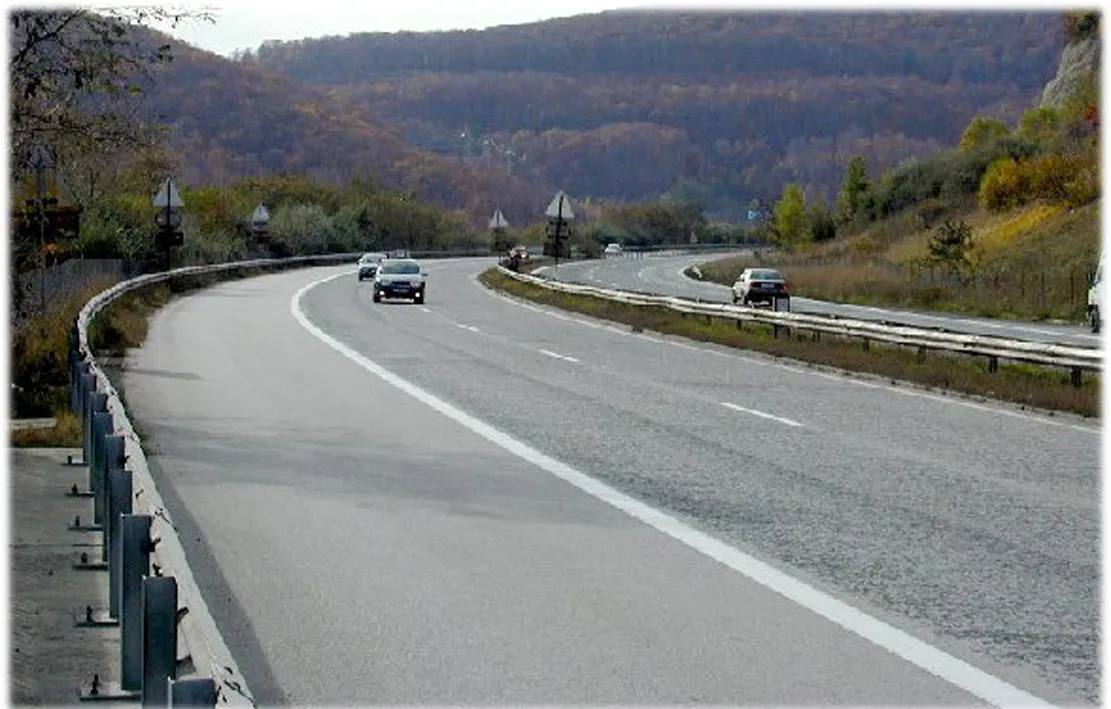The EBRD is investing in the largest infrastructure project in Bosnia-Herzegovina (BiH) to date by lending €180 million to the state to construct key sections of the Trans-European Corridor Vc. A key transport artery linking BiH with the rest of Europe, Corridor Vc starts in Budapest, Hungary and ends in the Adriatic Port of Ploce in Croatia. It runs north to south through the centre of BiH, and is the most strategically important link for regional trade and economic development. The €180 million EBRD finan
July 6, 2012
Read time: 2 mins
The 1166 European Bank for Reconstruction and Development is investing in the largest infrastructure project in Bosnia-Herzegovina (BiH) to date by lending €180 million to the state to construct key sections of the Trans-European Corridor Vc.
A key transport artery linking BiH with the rest of Europe, Corridor Vc starts in Budapest, Hungary and ends in the Adriatic Port of Ploce in Croatia. It runs north to south through the centre of BiH, and is the most strategically important link for regional trade and economic development.
The €180 million EBRD finance is part of an overall €480 million investment in the priority motorway sections on Corridor Vc, which will be co-financed with the1054 European Investment Bank (EIB). The priority sections include a 15.2km section from Drivusa to Kakanj, 18.9km from Vlakovo to Tarcin, 21.4km from Pocitelj to southern border of Croatia and 10.9km from Odzak to the northern border with Croatia.
As part of the project, the EBRD is also providing institutional support to the recently established motorway directorate (FBHMD) and for the development of subsequent sections of Corridor Vc using private finance.
Technical assistance is being provided by the donors of the EBRD-Western Balkans Fund to the amount of €500,000 for institutional support; €80,000 by the Central European Initiative for preparation of a resettlement action plan and a €500,000 by3287 EU’s Infrastructure Preparation Facility for project implementation.
Signing the project, Peter Reiniger, EBRD’s business group director for Central Europe and the Western Balkans, said that as the largest infrastructure investment in BiH so far, Corridor Vc will play a key role not only in providing a financial boost to the development of the BiH economy, but it will also have significant impact on the region. As well as connecting towns and cities, the improved road infrastructure will support trade and development and make the country and the region more attractive for investment.
The EBRD is the largest institutional investor in Bosnia-Herzegovina, having invested €779 million in 70 projects in a number of important sectors.
A key transport artery linking BiH with the rest of Europe, Corridor Vc starts in Budapest, Hungary and ends in the Adriatic Port of Ploce in Croatia. It runs north to south through the centre of BiH, and is the most strategically important link for regional trade and economic development.
The €180 million EBRD finance is part of an overall €480 million investment in the priority motorway sections on Corridor Vc, which will be co-financed with the
As part of the project, the EBRD is also providing institutional support to the recently established motorway directorate (FBHMD) and for the development of subsequent sections of Corridor Vc using private finance.
Technical assistance is being provided by the donors of the EBRD-Western Balkans Fund to the amount of €500,000 for institutional support; €80,000 by the Central European Initiative for preparation of a resettlement action plan and a €500,000 by
Signing the project, Peter Reiniger, EBRD’s business group director for Central Europe and the Western Balkans, said that as the largest infrastructure investment in BiH so far, Corridor Vc will play a key role not only in providing a financial boost to the development of the BiH economy, but it will also have significant impact on the region. As well as connecting towns and cities, the improved road infrastructure will support trade and development and make the country and the region more attractive for investment.
The EBRD is the largest institutional investor in Bosnia-Herzegovina, having invested €779 million in 70 projects in a number of important sectors.







